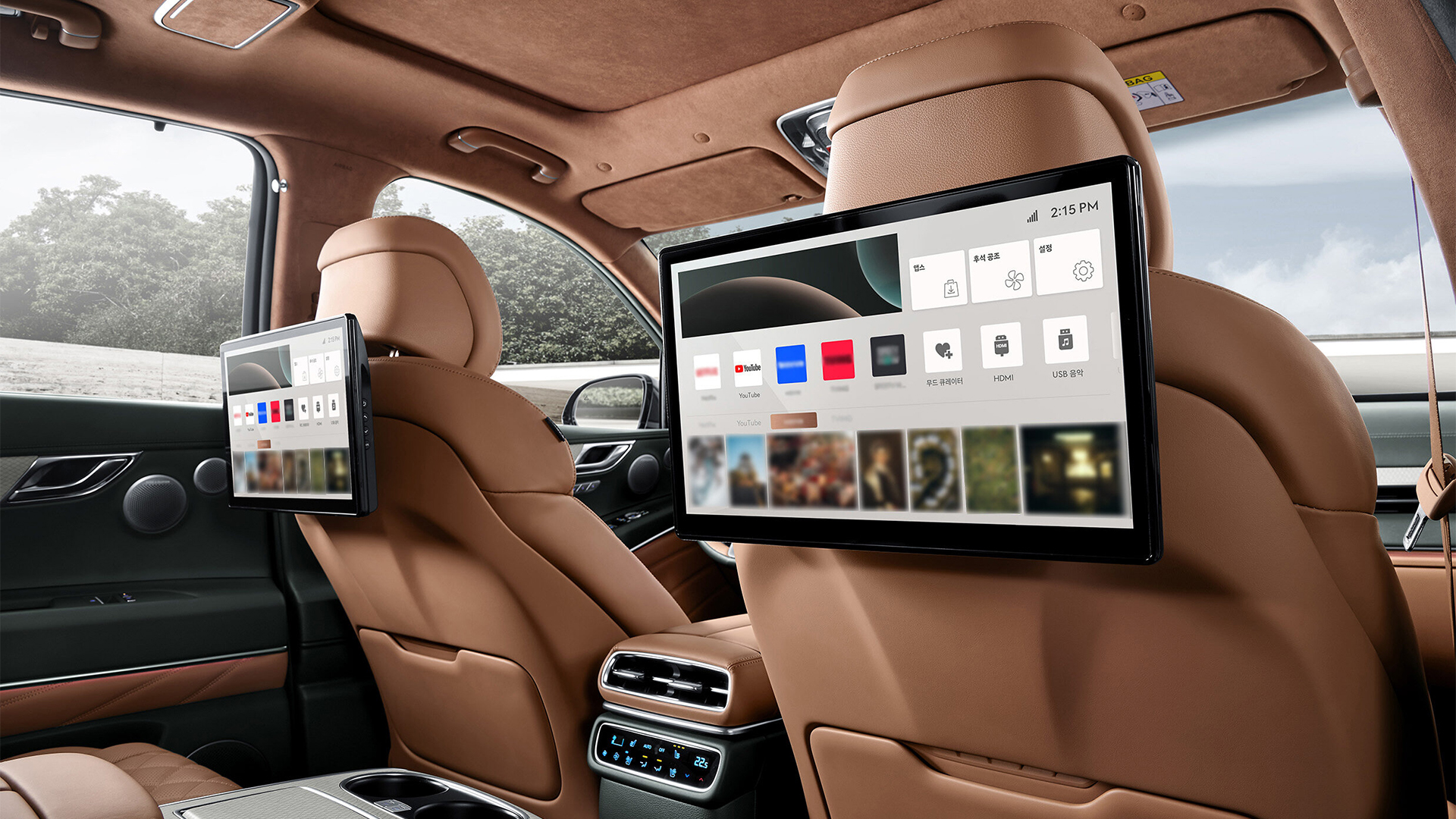LG's smart TV platform comes to Hyundai cars to brighten up your road trips
Upcoming Genesis models will feature LG’s webOS for Automotive

Sign up for breaking news, reviews, opinion, top tech deals, and more.
You are now subscribed
Your newsletter sign-up was successful
Hyundai Motor Group, which owns the Hyundai, Kia and Genesis automotive brands, has announced a new partnership with LG Electronics to bring its webOS for Automotive interface into future cars.
The platform, which is based around LG's existing smart TV OS, will allow passengers in the front and back seats to watch "high-definition content they typically enjoy on their smartphone or TV in compliance with driving and safety regulations," according to a statement released by LG Electronics.
The unveiling event of this new automotive infotainment platform was joined by representatives from YouTube, which has collaborated closely with LG and Hyundai Motor Group to bring more of its entertainment inside vehicles. The upcoming Genesis GV80 and GV80 Coupe are tipped to be the first to receive access to the popular app.
Genesis, which is considered Hyundai Motor Group’s luxury brand, will also be the first to feature this version of webOS, which LG says has reached cumulative sales of 200 million in the Smart TV market.
It is likely to appear both in the dashboard displays and in optional rear screens mounted to the headrests, while front and rear passengers will be able to indulge in different movies and shows at the same time.
On-demand and on-the-go
LG and Hyundai Motor Group say they've worked closely with YouTube to bring its native app into the car. But LG's webOS platform for smart TVs is Linux-based and currently offers numerous on-demand and streaming services, such as Disney Plus, Netflix, Now TV and much more.
Although not confirmed, it is highly likely its automotive platform will also expand to feature apps like these in the near future. After all, who wants to be limited just to YouTube?
Sign up for breaking news, reviews, opinion, top tech deals, and more.
For now, LG says the service is aiming to provide "differentiated mobility experiences that bring more value to life on the road" by extending our living spaces into our vehicles. But the arrival of such attention-grabbing content in cars also raises questions.
The legalities around streaming services while in a moving vehicle differ from territory to territory, but one way manufacturers have got around this is by installing privacy screens on the passenger-side of the dash, which the driver is unable to see. Porsche offers a similar set-up in its current Taycan model as an optional extra.
Still, Genesis vehicles are actually often purchased as chauffeur-driven cars in popular Asian markets, meaning passengers are more likely to indulge in TV and movies from the back seats anyway. The best way, in our opinion.
You might also like

Leon has been navigating a world where automotive and tech collide for almost 20 years, reporting on everything from in-car entertainment to robotised manufacturing plants. Currently, EVs are the focus of his attentions, but give it a few years and it will be electric vertical take-off and landing craft. Outside of work hours, he can be found tinkering with distinctly analogue motorcycles, because electric motors are no replacement for an old Honda inline four.